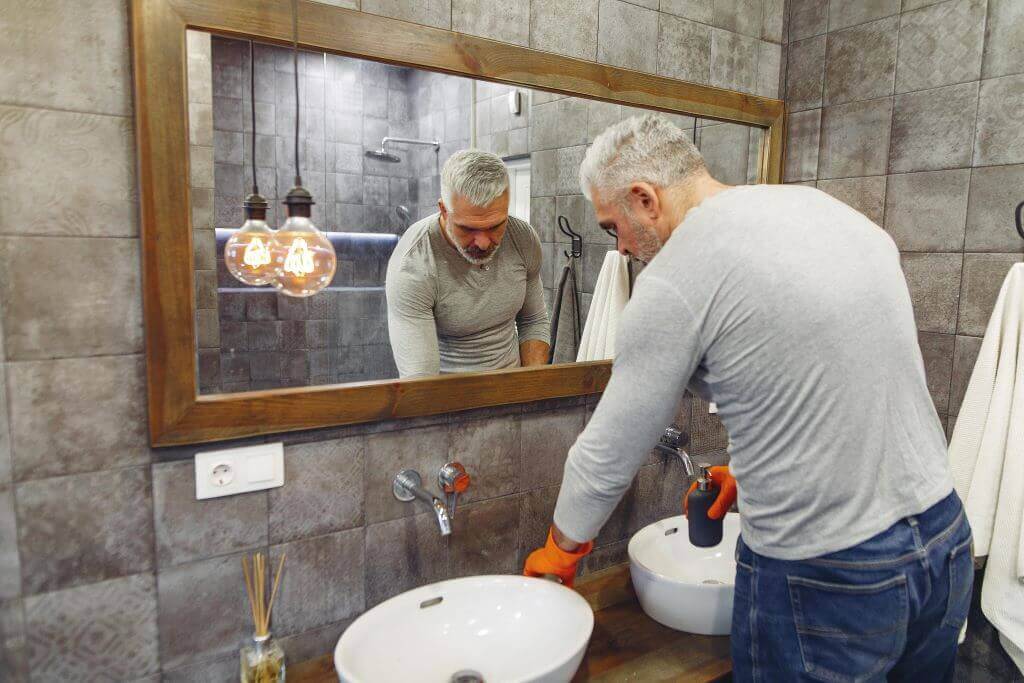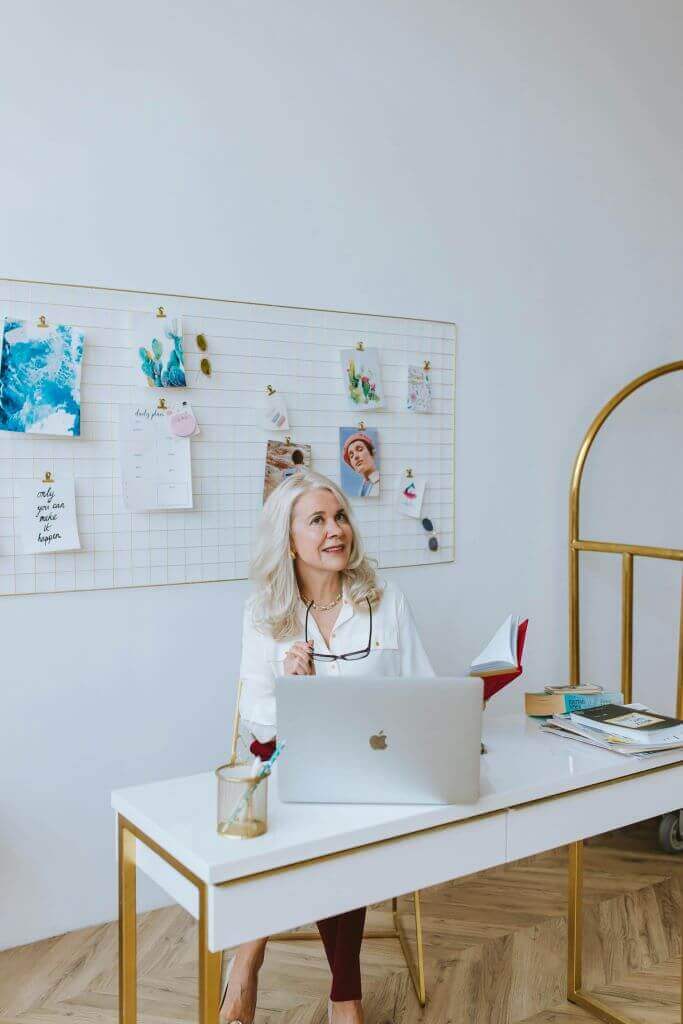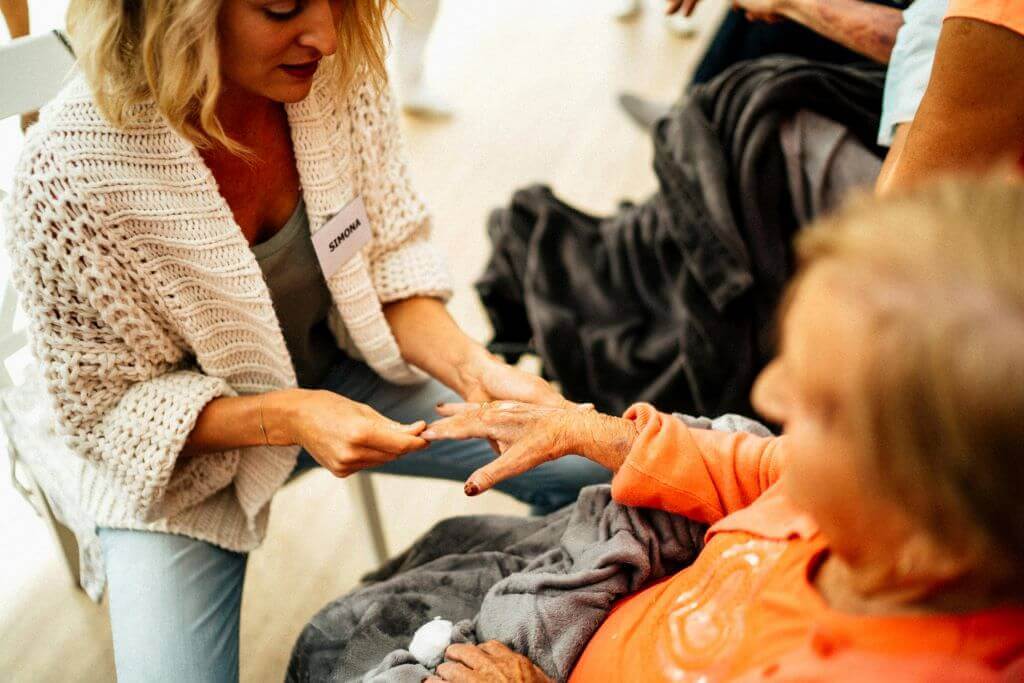Personal hygiene is a fundamental aspect of self-care for everyone, but it takes on an even greater significance as we age. Seniors may face unique challenges in keeping themselves clean and comfortable due to reduced mobility, dexterity issues, and even vision changes. However, with a personalized hygiene routine and the help of some helpful products and assistive devices, seniors can maintain their well-being, independence, and a sense of dignity.
Good hygiene goes far beyond just feeling fresh and looking presentable. It plays a crucial role in safeguarding people from a number of health concerns. Bathing and washing hands regularly helps to prevent the spread of bacteria. Proper skincare helps maintain healthy skin, reducing the risk of dryness, irritation, and pressure sores. Oral hygiene helps to ward off dental problems that can impact overall health and nutrition.
Establishing a Personalized Routine: Tailoring Hygiene to Individual Needs
There's no single, one-size-fits-all approach to personal hygiene. The key is to develop a comfortable, manageable routine that suits the person’s needs and preferences. Let’s break down the most important aspects of a personalized hygiene plan:
Bathing and Showering:
Frequency: While daily showers might have been the norm earlier, older people with healthy skin may only need to shower two to three times a week. The frequency will, however, depend on how active the person is and their overall skin health. For instance, active people who sweat a lot must shower more frequently, while those with dry, sensitive skin may need to limit bathing to avoid further dryness.
Safety First: Bathing carries a high risk of falling for older people with balance issues or limited mobility. Install grab bars around the bathtub and shower stall for added support. Non-slip bath mats also help prevent falls, and installing a shower chair with a hand-held showerhead allows the person to sit while showering.
Product Choices: Harsh soaps can strip away natural oils from the skin, leaving it dry and irritated. A gentle cleanser or moisturizing body wash works equally effectively but preserves the skin's natural moisture barrier. Bath wipes are a good alternative for in-between days, especially for those with limited mobility or who find showering difficult.
Oral Hygiene:
Brushing: Brushing twice daily with a soft-bristled toothbrush is recommended for good oral health. Focus on cleaning all surfaces of the teeth and gums for two minutes each time to remove plaque and food particles that can contribute to tooth decay and gum disease.
Flossing: Flossing removes plaque and food particles from between teeth, where brushing alone can't reach. This helps prevent gum disease, which can lead to tooth loss and other health complications.
Denture Care: Seniors with dentures must pay particular attention to denture hygiene. Clean dentures daily with a denture cleanser to remove plaque and food debris. Soak them overnight in a denture-cleaning solution to prevent them from warping and to keep them smelling fresh.
Electric Toothbrushes: For seniors with limited dexterity or arthritis, electric toothbrushes can make brushing easier and more effective. They can help achieve a thorough cleaning even with reduced hand and arm strength.
Skin Care:
Gentle Cleansing: Avoid harsh soaps and choose fragrance-free cleansers specifically formulated for sensitive skin. These cleansers are less likely to irritate or dry out the skin, which is a common concern for seniors.
Moisturizing: Dry skin is a frequent problem for older people as the skin produces less oil naturally. Apply moisturizers regularly after personal hygiene routines to keep the skin hydrated and healthy. Look for moisturizers with ingredients like hyaluronic acid or ceramides, which help lock in moisture and improve skin elasticity.
Sun Protection: Even limited sun exposure can damage skin, increasing the risk of wrinkles, age spots, and skin cancer. Apply a broad-spectrum sunscreen whenever you go outside, even on cloudy days, to protect exposed skin against both UVA and UVB rays.
Hair Care:
Washing Frequency: Like bathing, shampooing frequency depends on hair type and activity level. People with oily hair may want to wash more frequently, while dry hair would benefit from less frequent washing. Avoid washing too frequently, as this can strip away natural oils and leave the hair dry and brittle.
Product Choice: Use gentle shampoos and conditioners designed for thinner or drier that many older people tend to have. Look for hydrating and nourishing products, and avoid harsh chemicals or sulfate-based cleansers that can strip natural oils and moisture.
Volumizing and Detangling: If you have fine hair, consider volumizing shampoos and conditioners to add body and bounce. Detangling conditioners help to make combing and styling easier for those with limited mobility or hand strength. Leave-in conditioners can also provide additional moisture and manageability.
Nail Care:
Keeping Nails Trimmed: Long nails are harder to keep clean and are more prone to breaking. Regularly trim fingernails and toenails with easy-grip clippers and files to maintain good personal hygiene and prevent injuries. Consider seeking assistance with nail care if dexterity is a challenge.
Foot Care: Regularly inspect feet for cuts, blisters, or signs of infection, such as redness, swelling, or ingrown toenails. Wear proper footwear that fits well and provides support. Choose shoes with good arch support and a wide toe box to accommodate foot shape changes. Address foot concerns with a medical professional who can diagnose and treat foot problems.
Additional Tips and Considerations:
Fragrances: Deodorants and perfumes can irritate sensitive skin. Try to use fragrance-free products whenever possible, or choose products formulated for sensitive skin.
Clothing Changes: Wear clean clothes daily and change more often if you have been sweating heavily. Some synthetic fabrics may hinder sweat evaporation. Use cotton or cotton blends that allow the skin to breathe.
Incontinence Management: Use the right type and size of incontinence products to prevent leaks. Change incontinence products regularly to keep the skin dry and prevent irritation. Consider disposable underwear for a more discreet and comfortable solution.
Mental and Emotional Aspects: Some people may experience anxiety or embarrassment related to personal hygiene tasks. It's important to talk openly and honestly with a doctor, caregiver, or trusted family member about any challenges and seek solutions together.
Assistive Devices and Products for Enhanced Independence
Thanks to modern technology, there are many helpful tools and devices nowadays that can make personal hygiene routines easier and safer for older adults and help them maintain a degree of independence. Here are some examples:
Long-handled Tools: Long-handled bath brushes, loofahs, and razors can extend reach and make bathing a little easier for people with limited mobility or dexterity. Ergonomically designed tools with easy-grip handles also provide better control.
Dressing Aids: Sock pullers, long-handled shoehorns, and buttonhook dressers make getting dressed less challenging.
Mirrors and Lighting: Magnifying mirrors assist with shaving, applying makeup, and inspecting hair and skin for signs of trouble. Good bathroom lighting is also important.
Adaptive Clothing: Clothing designed for ease of dressing is also beneficial for people with limited mobility or dexterity. For example, look for pants with elastic waistbands or garments with velcro closures instead of buttons or zippers.
Conclusion
Neglecting personal hygiene can sometimes cause more serious health problems, particularly among older people. It’s important, therefore, to address any challenges as quickly as possible. For caregivers, this means understanding the signs of poor hygiene and knowing how to help the person deal with it. Remember, empowering your patient to look after their hygiene goes beyond just cleanliness. It also promotes independence and dignity.
For advice on devices and products that can help you or a loved one maintain good hygiene, contact the team at LL Medico. We have been dealing with senior care products for over 25 years and stock a wide range of quality products at competitive prices. Whether you need personal care products, adult diapers, or mobility aids, LL Medico has your back. Call us at (855) 422-4556 or email support@llmedico.com.







 855-422-4556
855-422-4556 Chat
Chat E-Mail
E-Mail Monday - Friday 9:00AM to 5:00PM EST
Monday - Friday 9:00AM to 5:00PM EST





 Shopping With LL Medico
Shopping With LL Medico
 855-422-4556
855-422-4556